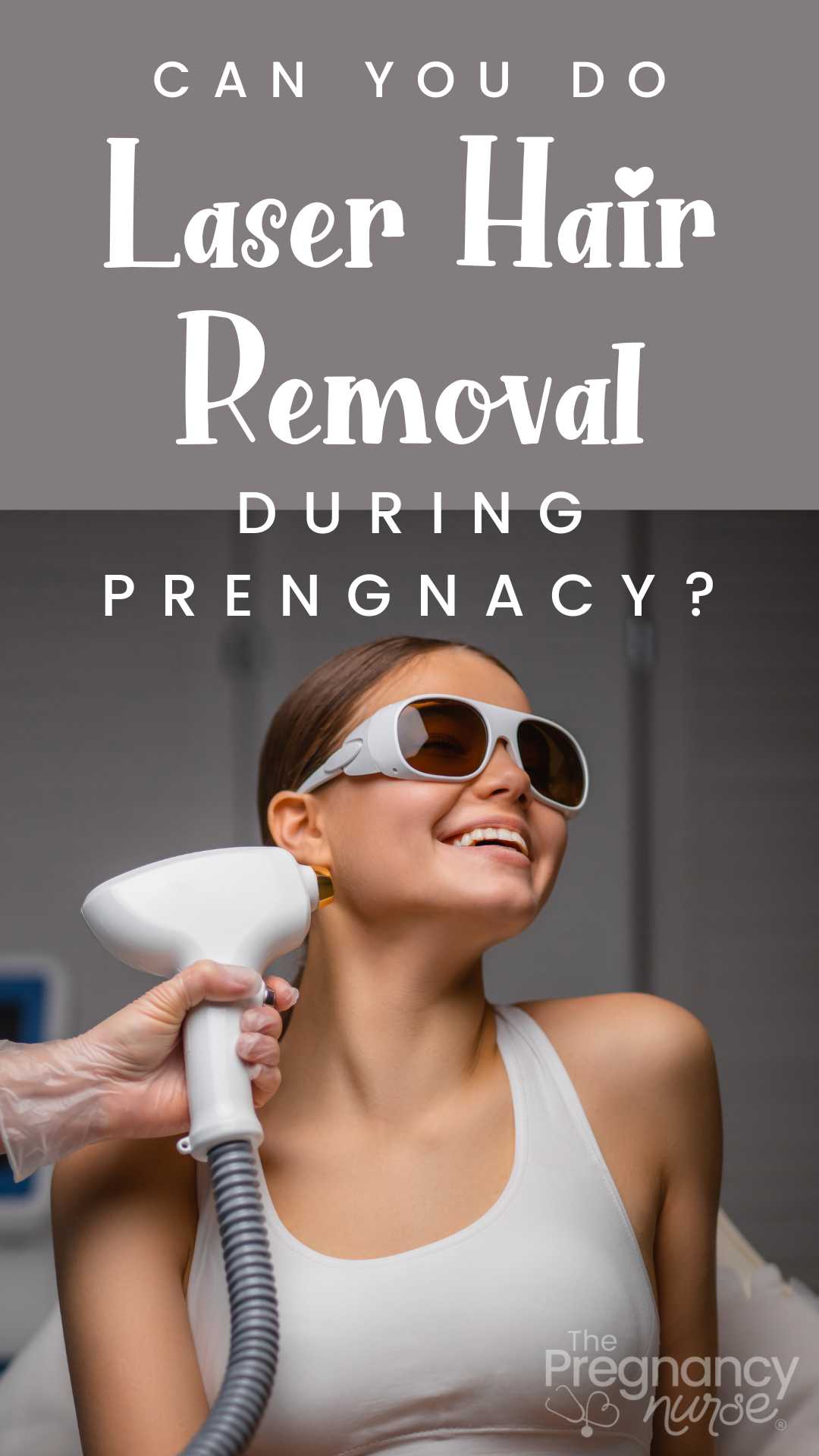As a pregnant parent, you’re likely focused on providing the best care to your unborn child. But there are still some aspects of self-care that you may be wondering about—like hair removal. Laser hair removal is one option many people use for longterm grooming and styling solutions, but can it safely be done while pregnant? In this blog post, we’ll discuss all the potential risks associated with laser hair removal during pregnancy in order to make sure you have all the information needed to take care of yourself and your growing family.

But first, how do I know all of this? Hi — I’m Hilary — The Pregnancy Nurse 👩⚕️. I have been a nurse since 1997 and I have 20 years of OB nursing experience, I am also the curly head behind Pulling Curls and The Online Prenatal Class for Couples. 🩺 I have talked to LOTS of people who had questions about laser hair removal, and I have looked at a lot of the studies in this arena — so let’s chat!
BTW, if you want to learn more about your pregnancy and delivery be sure to join me in here.
What is laser hair removal and how does it work?
Laser hair removal is a popular method of permanently removing unwanted body hair. It works by targeting the melanin in each strand of hair and delivering an intense beam of light that destroys the hair follicle, preventing it from growing back. The procedure itself takes only a few minutes to complete and can be done almost anywhere on the body.
With a series of treatments, you can expect permanent hair removal in the area of your choice.
But, most often it works only on darker colored hair (as it’s targeting the melanin (or coloring) in the hair.
So if your body hair is blonde it likely won’t work.
Can you get laser hair removal while pregnant?
Most medical professionals advise against getting laser hair removal while pregnant. This is because the lasers can heat up the skin, and it’s not known how this could affect your unborn baby. Additionally, hormones released during pregnancy can cause increased sensitivity to laser treatments and increase the risk of side effects such as burning or blistering. It’s especially important to avoid laser hair removal on your abdomen, as there is a risk of the lasers penetrating the skin and affecting the baby.
There aren’t any studies on laser hair removal during pregnancy, most of the concern is theoretical. Also, I would guess that the places of business that do hair removal would prefer not to do it on pregnant clients due to the liability that COULD happen if something were to happen to the baby.
We have this issue in many areas like if you can ski during pregnancy.
What are the risks associated with getting laser hair removal while pregnant
There are specific changes in your pregnant body that can affect laser hair removal from times when you are not pregnant:
- You have increased blood throughout your body, meaning you may feel more pain, or react differently to things than you would when you weren’t pregnant
- The changes in hormones may affect how you react to different products
- Hair may grow differently than when you’re not pregnant (due to hormones, blood flow, etc).
Although laser hair removal is generally considered safe, there are some risks associated with getting the procedure while pregnant. These include:
- Skin irritation and inflammation
- Burning or blistering of the treated area
- Increased sensitivity to the lasers
- Unexpected side effects from increased hormones
- Risk of penetration into skin, which can be dangerous to the baby
It may be more painful or take longer to heal when you have these issues during your pregnancy. But, ultimately I think they worry there is a risk to the fetus, and a huge liability if something goes wrong, so they ask you to wait until your pregnancy is over.
The good news is that there isn’t an issue with having laser hair removal while breastfeeding! 🙂
Alternatives to laser hair removal during pregnancy
If you’re pregnant and want to remove unwanted hair, there are several alternatives available.
Depilatory creams are a popular option for temporarily removing body hair, as they don’t pose any risk to the baby. However, some providers worry about how you will react to the creams with all the chances in blood flow and hormones. Personally, I say that if you’ve used these creams previously you can test them in a small spot during pregnancy (to make sure you’re OK with them) and then use them, but it’s not a great time to START those creams, as a lot of people get irritated by them (but pregnant or not pregnant). You’d also want to NOT use them in your genital area.
Threading and waxing are also options that can be done without putting your unborn child in danger. Some women say they are more painful though. I have a whole post on Brazilian waxing during pregnancy.
You can also just shave the hair during your pregnancy. Of course, that can also irritate your skin, but just do it with some caution and watch for any reaction.
And, of course you can just let the hair grow. No one at the hospital cares, but I know that some patients feel really weird with hair so that would be up to you!
It’s important to weigh the risks and benefits of laser hair removal while pregnant, as it can be dangerous for you and your baby if not done properly. While there are alternatives available such as depilatory creams, waxing, and threading, it’s best to consult with your doctor before making any decisions about hair removal during pregnancy. Ultimately, it’s up to you and your doctor to decide what’s best for both of you.
And come join me in The Online Prenatal Class for Couples — we’ll give you the risks and benefits of LOTS of things in pregnancy.
And, if you’re not quite sure you’re ready for that whole thing, check out my free prenatal class. It’s your first step toward getting in the driver’s seat of your birth.




 Can Pregnant Women Eat Ranch Dressing?
Can Pregnant Women Eat Ranch Dressing?
